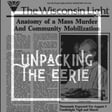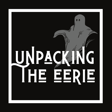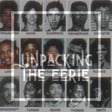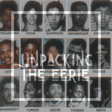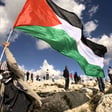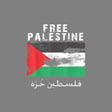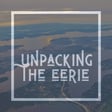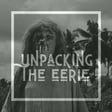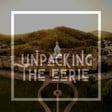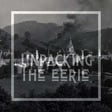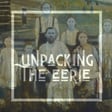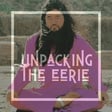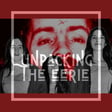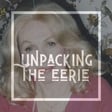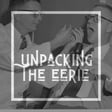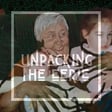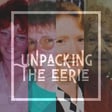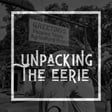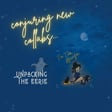Resistance as a Right for Palestinians
00:00:00
Speaker
resistance is necessary and it's a right of the Palestinian people.
00:00:05
Speaker
It's actually an enumerated right.
00:00:08
Speaker
I said you could look it up.
00:00:09
Speaker
I don't have to even explain it to you.
00:00:11
Speaker
It's an enumerated right of the Palestinian people to resist oppression and settler colonialism.
Introduction to Palestine Roundtable Part 2
00:00:18
Speaker
Hey everyone, this is Akshi, one of the co-hosts of Unpacking the Eerie.
00:00:23
Speaker
You are about to listen to the second part of the Palestine Roundtable.
00:00:27
Speaker
If you haven't listened to part one yet, I suggest that you go back and do that first.
00:00:32
Speaker
In this episode, our lovely guests, Mishleen, Batool, Mohammed, Faraz, and Vinny,
00:00:39
Speaker
will cover even more ground, including, but not limited to, personal experiences they've had living through aggressions in Palestine and encountering the Israeli occupation force, the U.S.'s complicity in Israel's brutality, and also in the mutual respect between religions that has existed for centuries before the occupation began.
00:01:01
Speaker
I know that I've been able to learn so much from listening to these wonderful, insightful folks share their experiences and perspectives.
Upcoming Q&A Sessions
00:01:09
Speaker
And in the next month, Shana and I will have the opportunity to unpack some of these topics further in Q&As.
00:01:15
Speaker
So keep a lookout for those episodes coming soon.
Ariel Sharon and the Second Intifada
00:01:20
Speaker
This episode was recorded in December 2023.
00:01:22
Speaker
And with that, here is the episode.
00:01:28
Speaker
Guys, I was having a struggle trying to pronounce Sharon's first name.
00:01:31
Speaker
His fucking name is like Ariel or Ariel something.
00:01:34
Speaker
I was like, what the fuck?
00:01:35
Speaker
Is that a Merman name?
00:01:38
Speaker
Anywho, on a less positive note, Sharon went in and stormed the Masjid Al-Aqsa, which is one of the holy sites for Muslims.
00:01:47
Speaker
And he had, I think, a thousand soldiers with him.
00:01:50
Speaker
And that kind of sparked the Intifada, the second Intifada, at least for Palestinians in 2000.
Impact of Muhammad al-Durrah's Execution
00:01:58
Speaker
I mean, those days, that's when Mohammed al-Durrah, right?
00:02:04
Speaker
Was, was, was martyred.
00:02:06
Speaker
And that I think is seared into every, every Arab person's memory.
00:02:13
Speaker
Like the way they executed this young boy.
00:02:18
Speaker
with his father, his father survived.
00:02:21
Speaker
Yeah, protecting him and shielding him.
00:02:23
Speaker
And on live TV, right?
00:02:26
Speaker
And if I'm not mistaken, I can't remember 100%, like, you know, but I, if I'm not mistaken, the person who actually filmed it was fired?
Televised Terror and Palestinian Resistance
00:02:36
Speaker
If I'm not mistaken, I think.
00:02:37
Speaker
I think it was like French TV.
00:02:39
Speaker
Yeah, yeah, this I learned later on, like, you know, but I'm just like...
00:02:43
Speaker
It didn't do them good, propaganda-wise.
00:02:45
Speaker
Yeah, exactly, absolutely, you know, executing a boy.
00:02:48
Speaker
And now they graduated into assassinating by mass, you know, masses, entire neighborhoods being wiped out in real time on our phones, you know?
00:02:59
Speaker
When I think about, like, even, like, the first, the first, they say the first terror attack that was televised, it was, like, the King David, attacked by the Irgun and the Hagana, who are the origins of the IOF, the...
00:03:13
Speaker
the Israeli occupation forces of the Zionist regime, the army of the Zionist regime, you know, that's how intifadas are
Critique of Israel's Self-Defense Narrative
00:03:21
Speaker
It's usually triggered by a deeply invasive operation, you know, maneuver.
00:03:31
Speaker
And then like, we're like, okay, fighting back to protect what's left, right?
00:03:36
Speaker
to protect ourselves from this.
00:03:39
Speaker
And then you hear this cliché, it's not cliché, it's a propaganda line that is constantly repeated because it's a lie.
00:03:47
Speaker
They have to repeat it even more times to try to make it, to manufacture consent and to manufacture truth out of it that Israel has the right to defend itself.
Role of International Agencies in Conflict
00:03:59
Speaker
Habibi, no, it's in the international law that you so claim to respect and adhere to, and, you know, Switzerland, so humane in Switzerland, you know, with the Red Cross, that is, you know, people in Gaza are saying that this agency, a lot of these international agencies that are supposed to be humanitarian can't even let in a bottle of water, you know, get into Gaza, and they're complicit.
00:04:21
Speaker
There are problems.
00:04:22
Speaker
They're complicit.
00:04:23
Speaker
They're the ones who are there.
00:04:24
Speaker
They're protecting the Zionists and like, you know, helping the hostages.
00:04:28
Speaker
But when it comes to the Palestinian, where were they when the Palestinian prisoners were released?
00:04:32
Speaker
Did you see how they sent in toys that looked like meals?
00:04:40
Speaker
These kids are starving and they're giving them toys that look like burger meals.
00:04:45
Speaker
I'm like, what the fuck?
Propaganda in Conflict Narratives
00:04:46
Speaker
But going back to Muhammad Durrah, his dad is still alive.
00:04:49
Speaker
And he actually suffered a great loss right now in Gaza.
00:04:52
Speaker
I don't know if it was his other two sons or his siblings.
00:04:57
Speaker
Two of his brothers were killed the same way.
00:05:00
Speaker
And imagine, just imagine being in his shoes.
00:05:05
Speaker
I don't think any one of us here can even comprehend being close to that situation.
00:05:08
Speaker
And the audacity, I mean, we were talking about projection, how they always project what they do.
00:05:15
Speaker
When Muhammad Durru was killed, they said it was, oh, he was killed by Palestinian fire.
00:05:20
Speaker
When Shirin Abu Akleh was murdered, they said it was Palestinian fire.
00:05:25
Speaker
When these children are dying, they're saying it's rockets firing back.
Ignoring Palestinian Realities in Western Narratives
00:05:30
Speaker
This projection, it's vile, it's disgusting, and it has to be repeated time and time again.
00:05:36
Speaker
Like you said, to manufacture some sort of truth, some sort of falsehood.
00:05:39
Speaker
How many times did they spread the beheaded babies?
00:05:41
Speaker
Who lied about that?
00:05:42
Speaker
Who said that they saw pictures of it?
00:05:44
Speaker
Wasn't it the fucking Genocide Joe who went on TV to say he saw photos of it?
00:05:50
Speaker
And it wasn't real, nothing.
00:05:51
Speaker
We know already that it was like, but the lie traveled.
00:05:54
Speaker
I think it's also wild how on our end, videos, pictures of demolished houses and everything, there's proof from, you can go back to the start of everything.
Media Portrayal and Western Complicity
00:06:04
Speaker
And none of it is legitimized.
00:06:05
Speaker
But if one white man gets up and says, oh no, I saw that.
00:06:09
Speaker
The whole country.
00:06:10
Speaker
I remember at my work, we got an email from a CEO saying, all right.
00:06:14
Speaker
Heart stand out with Israel right after October 7th and I'm like what the fuck bro like It's been one day The performativity of it all right?
00:06:23
Speaker
Yeah Yeah I mean the theater of it all like you know everything out here is a theater you know like they have you know It's a farce it's a fucking farce like this is not real Yeah yeah yeah I mean you know they have to like you know they have to make their comic books you know of superheroes they have to make their TV shows you know with 300 guy
00:06:43
Speaker
Jared Butler, who raised money for the IOF.
00:06:47
Speaker
That film, and it came out shortly, like 2006, I think, after the invasion of Iraq, after they occupied Iraq, and after they invaded Afghanistan, after, again, manufacturing this whole, quote-unquote, war on terror, right?
Western Complicity in Genocide and Imperialism
00:07:05
Speaker
And that's why I think the Palestinian resistance has really exposed the West for what it is.
00:07:13
Speaker
It exposed it in a way that is indefensible when we are witnessing a blatant genocide.
00:07:20
Speaker
And there is no question that what we're witnessing is a genocide against colonized people.
00:07:27
Speaker
And then you have the so-called United States defending these atrocities.
00:07:32
Speaker
And then the American people are asking themselves, a lot of them are asking themselves, why is this happening?
00:07:38
Speaker
Why is our government doing this?
00:07:41
Speaker
Why is our government protecting and supporting and funding?
00:07:45
Speaker
What is a blatant genocide?
00:07:46
Speaker
People are actually asking questions that they might have just ignored or contemplated briefly and didn't think about as much.
00:07:53
Speaker
And asking those questions has really exposed a lot of things because it becomes very clear that the Zionist entity is really just an extension of American imperialism.
00:08:04
Speaker
It is just another colony for them.
00:08:07
Speaker
It's, you know, it had its reasons during the Cold War era and to try to reduce the spread of communism in that region and to have basically a watchdog for the United States and the West.
00:08:21
Speaker
And to just be able to monitor that area and control it.
Israel as a U.S. Ally in Global Strategy
00:08:25
Speaker
And of course these reasons have evolved and there's more to it now than just stopping the spread of communism.
00:08:31
Speaker
And it's just about having a watchdog, stealing the resources, having basically a massive military base for themselves in the region.
00:08:39
Speaker
Among the other military bases that exist in other parts in West Asia, places like, for example, like Jordan or in southern Syria, where the United States still maintains American bases, that for them, you know, that's really the goal is geopolitical.
00:08:54
Speaker
And I think a lot of it has to do with current time imperialism.
00:08:59
Speaker
So when it comes to the past, it was okay to explore because it was a lot of quote unquote unknown land because they weren't out there.
00:09:07
Speaker
But now they want a method of controlling the Middle East and controlling the Suez Canal.
00:09:12
Speaker
is the way to do so they have like an inn basically on the land yeah this will never restore arab sovereignty this is never going to allow for an arab united body because they have an infiltrator in there that's affecting that control and um a lot of it too comes with the divisions between religions in that area and i know mishin can talk about like the church bombings after everything that happened uh yeah after the intubado
00:09:37
Speaker
First, I want to say my cousin used to say or still says that Israel is.
Personal Accounts of Second Intifada
00:09:44
Speaker
So meaning Israel is the daughter of – the spoiled daughter of the U.S., like the only child.
00:09:52
Speaker
But going back to like the second intifada, Israel is the only child.
00:09:55
Speaker
I was 10 years old when it happened, and I remember to this day when it happens and all the operations and all of these things, and I remember the siege.
00:10:04
Speaker
I remember my mom and I – my dad left to the U.S. because financially things were really – the siege was happening, so everything was shut down.
00:10:12
Speaker
And I remember my mom and I would actually go out during the siege.
00:10:16
Speaker
to go to my aunt's house because it was just my mom and I. And then we would go through one of the main roads to Bejala.
00:10:24
Speaker
And I remember one time as we were crossing, we saw a big tank, I don't know, a few feet away.
00:10:32
Speaker
And then the missile was directed towards us.
00:10:36
Speaker
And I remember my mom booking it, like the back way, the back roads.
00:10:42
Speaker
But during the 40-day, one of the sieges that happened, there was the 40-day siege, and it was after Bethlehem was like...
00:10:51
Speaker
basically got revamped.
00:10:53
Speaker
They fixed the roads, they fixed the street lights, they painted all of the fronts of the stores because it's 2000, the year 2000 of Bethlehem.
00:11:04
Speaker
And they even remodeled the Nativity Church where Jesus was born, since Jesus is Palestinian.
00:11:12
Speaker
A lot of the people from the resistance were hiding there.
00:11:16
Speaker
And, you know, in terms of the whole, you know, they divide and conquer, the priests and the nuns were, you know, keeping the resistance, you know, safe.
00:11:27
Speaker
And I remember my uncle, he got pulled by the IOF a couple times because he was trying to sneak in food to the church because he's also a priest.
00:11:37
Speaker
He was trying to sneak in food to the church, but they...
00:11:40
Speaker
like, held him at gunpoint a few times.
00:11:45
Speaker
And that was wild.
00:11:49
Speaker
I remember seeing the sound bombs and the light bombs.
00:11:56
Speaker
I remember my mom and I would turn off all the lights so they won't come in or see us or anything like that.
00:12:02
Speaker
And the nativity church was like, we could see it from our window.
00:12:05
Speaker
And I remember watching the sound bombs and the light bombs falling on the church.
00:12:10
Speaker
And that was just like...
00:12:12
Speaker
That was wild to see and I don't think I as a kid registered what was happening.
00:12:18
Speaker
But seeing that with my mom, it was just my mom and I seeing it.
00:12:22
Speaker
And I remember like it was just like it was yesterday, like seeing the bombs falling.
00:12:25
Speaker
It's not something you can unsee.
Historical Coexistence and Impact of Occupation
00:12:28
Speaker
And I remember like they ruined the church, like the, the, you know, the, the space, the, the buildings, everything was ruined from all the bombs.
00:12:38
Speaker
Because they are there in this land because God promised it.
00:12:42
Speaker
Do you really think God is approving of you?
00:12:44
Speaker
You're bombing these misogynist churches.
00:12:48
Speaker
And they don't think that because they're not religious.
00:12:52
Speaker
They hijacked the Jewish faith.
00:12:54
Speaker
They hijacked our brother's religion.
00:12:56
Speaker
That's what happened.
00:12:58
Speaker
And then they continued to divide and conquer.
00:13:00
Speaker
They tried to divide Christians and Muslims in Bethlehem, I remember.
00:13:06
Speaker
And they would even sometimes give special treatment for Christians to give them the permanent, you know, the tasriyah.
00:13:14
Speaker
to go up to Jerusalem, to visit the Aqsa, to visit the Holy Suffolk Church, you know?
00:13:21
Speaker
And then they would use and limit the Muslim men and women and everybody
00:13:29
Speaker
to cross, to go and pray.
00:13:31
Speaker
That happened to me, yeah.
00:13:33
Speaker
I know my see though, they give usually the tassrih for Muslims if you're above 70.
00:13:37
Speaker
Above a certain age, yeah.
00:13:41
Speaker
And even my cousins, the young men in the family, they give them hard time to give them the tassrih to go to Jerusalem.
00:13:48
Speaker
I mean, for now, ever since the genocide, this latest round of genocide began against Gaza,
00:13:55
Speaker
Al-Aqsa has been closed to the Palestinians except for those above 70.
00:14:00
Speaker
But on the other hand, all of the settler colonizers from Long Island, from Poland, from Brooklyn, you know, from Long Beach,
00:14:10
Speaker
They get to... They walk in and... Exactly.
Zionism vs. Judaism
00:14:14
Speaker
It's as though it's like their land, you know, and what Vinny said, you know, about Zionism hijacking and weaponizing Judaism.
00:14:23
Speaker
Zionism has nothing to do with Judaism, and the biggest proof is that there are so many Jewish people, you know, we know them well, we see them, we go together, you know, we do a lot of work together, liberation, real liberation work together, because they know that their path to freedom is
00:14:41
Speaker
intertwined with our liberation right like they know that they need to free their own people from the shackles of Zionism because Zionism is a doctrine that upholds white supremacy that originated in Switzerland in Europe in Germany in Austria and
00:15:02
Speaker
And then like just to use it as a justification to occupy Palestine at the order of, you know, the UK through the Balfour Declaration, cutting up Palestine and the Arab world and Africa and Asia, you know, through Sykes-Picot, right, in 1917.
00:15:24
Speaker
Now you know passing on the baton when you know the British Empire was like quote-unquote waning like the the influence of it passing the baton on to like the new empire the US Right and it's so where does Judaism fit into all of this?
00:15:40
Speaker
I don't I don't feel it doesn't feel very Jewish to me You know the same way it doesn't feel very Christian to me to be celebrating Christmas, you know when the patriarch
00:15:50
Speaker
the Latin patriarch in Jerusalem, you know, said effectively... Christmas isn't celebrated.
00:15:56
Speaker
I mean, how could you?
00:15:58
Speaker
How can you celebrate and give gifts to children when children are dying somewhere else for the birth
Destruction of Religious Heritage in Gaza
00:16:03
Speaker
Well, you're 100% you're right, but more on to your point, they're literally exterminating all of the Christians in Gaza.
00:16:12
Speaker
It's the third oldest church that was wiped off.
00:16:17
Speaker
And then when Notre Dame got set on fire, the whole world stopped.
00:16:22
Speaker
Everybody changed their profiles.
00:16:25
Speaker
And like, let's raise funds.
00:16:27
Speaker
Let's raise money.
00:16:29
Speaker
It's not that, I mean, yes, it's old, but.
00:16:31
Speaker
But it's only a monument.
00:16:33
Speaker
People living in there.
00:16:36
Speaker
And it's because it's in Europe and all of these things.
00:16:39
Speaker
But then we have art churches that have been there for.
00:16:43
Speaker
Real churches that have been there for over 2,000 years.
00:16:47
Speaker
They get bombed, they get bulldozed and then nothing happens.
00:16:52
Speaker
We don't say anything, you know?
00:16:54
Speaker
Yeah, so there's a fabrication once again of the divisions between the faiths in Palestine.
Threat to Historical Religious Respect
00:17:00
Speaker
Palestine has always been a place where Christians, Muslims and Jews live together in peace.
00:17:08
Speaker
It really wasn't until that Balfour Declaration and the influx of Eastern European Jews into that area that the waters became murked up, if you will.
00:17:18
Speaker
I mean, as a Palestinian Christian, I am indebted to my Muslim brothers.
00:17:24
Speaker
Every Christian needs to know, when they pray to Jesus Christ in the morning, they have to thank their Muslim brothers and sisters who hold the key to the sepulchre church.
00:17:34
Speaker
They're the defenders of Christ's tomb.
00:17:37
Speaker
The defenders of Christ's tomb are a Muslim family of the Salah al-Din bloodline.
00:17:41
Speaker
This is our history.
00:17:45
Speaker
When Al-Aqsa was founded, it was founded upon mutual respect of religions because the leaders that were going to go pray,
00:17:53
Speaker
at Jesus' tomb, they made the decision, if I pray here, I know my following will turn this church into a mosque.
00:17:59
Speaker
Therefore, I'm going to pick this rock up.
00:18:02
Speaker
I'm going to throw it as far as I can.
00:18:04
Speaker
And where that rock landed, that's where those leaders, they turned and they prayed to Christ.
00:18:08
Speaker
They prayed for Him.
00:18:10
Speaker
And that's where Al-Aqsa was built, on that faith.
00:18:14
Speaker
I think it's also important, even now with the demolished masajid, the mosques, and the kana'es,
00:18:24
Speaker
There was a video I remember seeing so vividly that says it was by a priest and they were like, my dear Muslims, if they demolish your mosques, if they demolish your mosques and you no longer can hold the Adhan, we will hold your Adhan from our churches.
00:18:39
Speaker
And that just shows you what Vinny was just saying.
00:18:41
Speaker
It's within every Palestinian.
00:18:44
Speaker
He even said, if there is no one alive to do that, I will use my voice and I will lead
Christianity's Community Focus vs. Capitalism
00:18:51
Speaker
Didn't we see the same thing in the Egyptian revolution?
00:18:54
Speaker
Didn't we see that the Muslims would be praying and it was our Christian siblings that were protecting the Muslims in Egypt during the revolution from the military and the police?
00:19:07
Speaker
Back then it was Mubarak, before they installed Sisi, right?
00:19:14
Speaker
The Christianity that's in the West is definitely very different than the Christianity that we have back home because, you know, I attended, you know, in my case, a Catholic school.
00:19:26
Speaker
And, you know, growing up in Jordan to a Palestinian family that was displaced in 1948.
00:19:33
Speaker
I, you know, being Catholic and Christian is really for the most part seen as one and the same, you know, growing up in that region.
00:19:41
Speaker
And one of the things that you see is that it really is truly very different than the Christianity that you see over here.
00:19:47
Speaker
The Christianity in the West, the Protestant Christianity is really rooted in capitalism.
00:19:52
Speaker
Even the sociologist whose name is Max Weber wrote about this.
00:19:56
Speaker
in a publication called The Protestant Ethic and the Spirit of Capitalism, in which he basically argues that the rise of capitalism was actually a product of Calvinist Protestantism that believed in individuality, which we still see this Protestant ethic in every facet of this, you know,
00:20:14
Speaker
Of this so-called United States in which we see it in the politics proceed in education We see it even in this myth of pull yourself up with your own bootstraps the idea of individualism is is rooted in in Western Christianity Compared to the Christianity that I grew up around the schools that I attended that my friends that were Christian my neighbors that were Christian that were more about community and less
00:20:40
Speaker
About this individualistic Materialistic aspect that is Rooted in western Christianity After the second intifada In 2007 Sharon did end up
00:20:54
Speaker
kind of going through it a little bit and then he became, he went into a vegetative
Ariel Sharon's Legacy
00:21:00
Speaker
So he spent the last eight years of his life in a vegetative state, basically in a coma.
00:21:06
Speaker
I hope he was trapped with his own thoughts because this is the same guy that did Sabra and Shatila massacre in 1982 during the Lebanese, the war in Lebanon, basically.
00:21:19
Speaker
He was the general then and massacred, how many people was it, 3,000 people in the refugee camp in Lebanon?
00:21:30
Speaker
Meanwhile, like, you know, like the Israelis were basically keeping guard and the phalangists in Lebanon were carrying out the massacre.
00:21:40
Speaker
So, I mean, he was facilitating it and directing it, perhaps, because we know that every, the source of every...
00:21:49
Speaker
Basically every kind of misery every kind of war is Trace it back to Israel, you know whether it's like the Bosnian genocide whether it's the Rwandan genocide Whether it's like the genocide of Rohingya in Myanmar Burma in Sudan right now Whether it's the Congo and we look into like the blood diamonds
00:22:13
Speaker
Israel, you trace back every single, and we're not even talking about like Pegasus, the software, and like how Israel destabilizes nations entirely through disinformation campaigns in political, you know, in politics, basically.
00:22:29
Speaker
Like, it's not a coincidence that in Argentina, you know, fascism got voted in.
00:22:35
Speaker
like there are institutes right zionist institutes um like for example the holocaust memorial is one of them where they're like oh feigning like care for like the bosnian uh genocide after it happens right after it's like pleaded quote unquote they feign like all of this care and everything but at the same time like they're carrying out a genocide an active genocide in palestine it's just accepted yeah i mean as though they're the moral authority
00:23:05
Speaker
Speaking of the division of land, the way we knew it was the entirety of the land.
Changes in Palestinian Territories and Resistance
00:23:12
Speaker
And then after the British did their thing, the land that they gave them initially has never been the land that's kept today.
00:23:21
Speaker
So when it comes to talking about what are the Palestinian territories that are officially recognized,
00:23:27
Speaker
That's not the same Palestinian territories that were officially recognized a few years back or a few years before that.
00:23:33
Speaker
So it's been changing.
00:23:34
Speaker
The annexation has been happening.
00:23:36
Speaker
And you see resistant movements within the Palestinian territories itself.
00:23:40
Speaker
And you should ask yourself, why is there resistance within a Palestinian territory?
00:23:44
Speaker
Shouldn't they be accepting at least of the territory they're given?
00:23:47
Speaker
But they're not actually given that.
00:23:49
Speaker
There's always checkpoints.
00:23:49
Speaker
There's always something.
00:23:50
Speaker
And I know, Mishleen, you can talk about Jumin a little bit.
00:23:53
Speaker
if you'd like or and their resistance coming out of them
00:23:58
Speaker
Yeah, I can talk about Beit Laham since I grew up there.
00:24:01
Speaker
In terms of checkpoints, there's always checkpoints.
00:24:04
Speaker
I even going to Jerusalem, I had to go through multiple checkpoints.
00:24:07
Speaker
If we had to go without, not through the checkpoints, we had to go through what we call it Wadi Al-Nar, which is like what, the valley of fire?
00:24:18
Speaker
So a lot of accidents would happen in Wadi Al-Nar, and that was the back...
00:24:24
Speaker
road that we would take to avoid the checkpoints.
00:24:27
Speaker
But talking a little bit more about the checkpoints, in 2002 the separation wall was built because the resistance were doing a lot of operations there and they built that wall to quote-unquote reduce those operations.
Impact of the Separation Wall
00:24:40
Speaker
And with that separation wall there was a lot more checkpoints.
00:24:43
Speaker
There's even like laser or like automatic guns on top of the separation wall.
00:24:51
Speaker
To even cross the separation wall, you have to go through their metal and then, you know, it's like, yeah, it's like almost like, it's like a maze.
00:25:00
Speaker
Yeah, it's like a maze.
00:25:01
Speaker
You have to go through so many different things.
00:25:04
Speaker
And then the IOF will humiliate the people, you know, they make them wait for hours.
00:25:11
Speaker
And something that when I went back home in 2014 for the first time since I moved out of Beit Laham, that was the first time seeing the separation wall.
00:25:20
Speaker
I mean, when I was there, there was no separation wall.
00:25:22
Speaker
And then going back, I saw it for the first time, and I remember just like having just like this weird feeling in my chest, seeing it for the first time and crossing through it.
00:25:31
Speaker
And then since I have the U.S. citizenship, going through that separation wall was a little different experience.
00:25:41
Speaker
because I had, you know, the so-called U.S. passport, I didn't have to go through the checkpoints.
00:25:47
Speaker
I would be able to drive through the checkpoints because I did not have to stop, which is an apartheid.
00:25:52
Speaker
And this is how they, you know, a lot of, you know, again, separate and divide.
00:25:56
Speaker
So I remember, and I remember seeing, you know, our people, like,
00:25:59
Speaker
having to wait in line and like for hours to get through to cross the separation wall, to go to Jerusalem.
00:26:06
Speaker
And then that separation wall is illegal.
00:26:11
Speaker
It's separated people from their lands.
00:26:14
Speaker
There's this house, I think, in Bethlehem that is surrounded by the separation wall from...
00:26:19
Speaker
On the three sides.
00:26:21
Speaker
So it's this house, the people that live in that house, they have to go through the multiple checkpoints to go from their house out of their home.
00:26:29
Speaker
And then I know Fira said that the separation wall was built by Semtex.
00:26:34
Speaker
And it's the same company that built the border wall in here, separating Mexico and the U.S.
00:26:41
Speaker
It's a Mexican company.
00:26:42
Speaker
And it's a Mexican company.
00:26:46
Speaker
Well, I mean, Mexico is this other colony as well.
00:26:48
Speaker
Like, you know, it's not just U.S., it's Canada, it's Mexico.
00:26:52
Speaker
I mean, so much of the world is removed from our origins by design.
Non-white Settlers and Internal Divisions
00:26:59
Speaker
And I think it's important to point out that we have this imagery, at least I think in the minds of a lot of people, that settler colonialism is only perpetrated by white people.
00:27:08
Speaker
And I think we need to move past that idea that settler colonialism is just inflicted or imposed or created just by white people.
00:27:17
Speaker
While yes, a lot of white folks have been involved in settler colonialism, we also have to remember that there are a lot of settlers and
00:27:27
Speaker
Palestine and other than Palestine are actually of Arab origins.
00:27:33
Speaker
And it's important to remember that they try to create all these ethnic identities, which are all socially constructed in a way that tries to
00:27:43
Speaker
create an image of proximity to Palestinians that are indigenous people, that are colonized.
00:27:49
Speaker
These settlers, a lot of them from Arab origins, places like Maghrib or Iraq, they themselves perpetuate a lot of oppression.
00:28:00
Speaker
Yes, they do suffer from some level of discrimination,
00:28:03
Speaker
from the white settlers, just as you know, even there are black settlers that live in Palestine also are discriminated against within the settler colony, but they themselves at the end of the day are also still settlers and they themselves are displacing Palestinians, they're displacing the indigenous people.
00:28:24
Speaker
And they're stealing their land and they're... They're the most brutal.
00:28:28
Speaker
Like, because they speak Arabic, they're put on the front lines against Palestinians.
00:28:32
Speaker
We see it so clearly in Al-Quds in Jerusalem, occupied Jerusalem, where, like, a lot of these settlers of color...
00:28:42
Speaker
if you will, and they go hardest against Palestinians, first because they need to prove their allegiance to the Zionist project, more Zionists than the Zionists themselves, like just to underscore how, you know, white supremacy is that underneath it all and how...
00:28:57
Speaker
You could be a person of color, as we were saying earlier, and still uphold white supremacy, right?
Infiltration by Musta'arabeen
00:29:03
Speaker
Like, you could be a foot soldier for white supremacy.
00:29:06
Speaker
Ben Gathir, you know, is of Iraqi origin.
00:29:09
Speaker
He whitewashed himself to appear to be more, you know, Hebrew.
00:29:14
Speaker
But in reality, like, he is, you know, we know how a lot of the intelligence units are of the Musta'arabeen, the Arabized, or the Arabizers.
00:29:24
Speaker
who masquerade, they try to dress like Palestinians because they speak the language, they try to blend in among Palestinians, but then they ambush Palestinians and abduct Palestinians and feed the prison industrial complex in Palestine, in occupied Palestine.
00:29:41
Speaker
Going off of what Micheline talked about, about internal resistance within the West Bank, I think, Vinny, you can really talk about Nablus and Sheikh Jarrah as of recently, actually, too.
00:29:54
Speaker
So, yeah, definitely before I get into resistance and the current post on the resistance,
00:30:00
Speaker
I do want to underscore that I hold my enemy to no moral standard.
00:30:06
Speaker
I literally hold those who are actually coming onto my land to take my home, to take my grandfather, to uproot my family from their home.
00:30:17
Speaker
to humiliate them, to drag them, to kill them.
00:30:20
Speaker
I don't hold that person or those who support that person to any moral standard.
Necessity of Resistance for Palestinians
00:30:24
Speaker
That being said, resistance is necessary and it's a right of the Palestinian people.
00:30:31
Speaker
It is actually an enumerated right.
00:30:33
Speaker
I said, you can look it up.
00:30:35
Speaker
I don't have to even explain it to you.
00:30:36
Speaker
It's an enumerated right of the Palestinian people to resist oppression and settler colonialism.
00:30:44
Speaker
Full stop on that one.
00:30:46
Speaker
With that being said, there's a current pulse of the resistance and it's beating.
00:30:52
Speaker
And what we're seeing within the West Bank earlier this year to what we're seeing now in Gaza.
00:30:57
Speaker
So what we saw in the West Bank is the resistance...
00:31:02
Speaker
rising up out of a sheer necessity to protect the homes that they live in.
00:31:08
Speaker
The people, the resistance in Janine started to protect that camp, the city of Janine.
00:31:16
Speaker
These are actual men of this community.
00:31:21
Speaker
who decided that they have no other choice but to take up arms to defend every square inch of their community.
00:31:31
Speaker
Everybody has a community.
00:31:32
Speaker
Everybody lives in a neighborhood or a surrounding place.
00:31:37
Speaker
Imagine if you actually had to survey and make sure that that place was not taken and your family was not uprooted and people did not live in your house fully furnished and kick you out and live and sleep on the same mattress that you.
00:31:54
Speaker
They didn't even change the drapes.
00:31:57
Speaker
They didn't even change the drapes.
00:32:00
Speaker
People's breakfast was on the table.
00:32:02
Speaker
People's breakfast were on the table when they walked in.
00:32:05
Speaker
They finished the cup of tea.
00:32:09
Speaker
They took it fully furnished.
00:32:11
Speaker
So what we're seeing in...
00:32:18
Speaker
Nablus, what we're seeing in Janine, what we're seeing in Sheikh Jarrah in Jerusalem, in Jerusalem, one of the most holy sites in the world, where Jesus Christ himself was crucified, Jesus Christ who was born in Bethlehem, Jesus Christ whom we celebrate the season of Christmas, Christ Mass.
00:32:42
Speaker
This is a right of each man, of each woman even.
00:32:45
Speaker
There are women taking up arms.
00:32:48
Speaker
There are women taking up arms alongside men.
00:32:52
Speaker
How progressive, how advanced are we as a people that everyone who is willing, fighting, and able will do that.
00:33:00
Speaker
And that's what we're seeing in the West Bank.
00:33:02
Speaker
Although they're very limited.
00:33:04
Speaker
What are their arsenal in the West Bank is we're talking small arms.
00:33:08
Speaker
We're talking small arms and improvised devices that are homemade.
00:33:12
Speaker
But the resistance is thriving and their communities still stand.
00:33:17
Speaker
Imagine living, this is the scenario in Sheikh Jarrah.
00:33:20
Speaker
You're living in your family's home that was built by you.
00:33:26
Speaker
Meaning you own it, meaning you don't rent it.
00:33:29
Speaker
And then you receive a notice saying that you're being evicted for rent not due or whatever the case of the trumped up charge is.
00:33:38
Speaker
A house that your grandfather built that you're being evicted from.
00:33:42
Speaker
That is the situation we're seeing in Jerusalem.
00:33:46
Speaker
One of the holiest sites in the world.
00:33:48
Speaker
That is the situation.
00:33:51
Speaker
There's a connective tissue between Sheikh Jarrah and Gaza because both of them were exiled from Yaffa, right?
00:33:58
Speaker
From 48 land that you were saying, Vinny.
Gaza as a Symbol of Resistance
00:34:02
Speaker
There are some that stayed and those are the third class citizens in so-called Israel in the...
00:34:11
Speaker
entity but then like you have Gaza you know people from Lid who are exiled from Lid from Haifa from Yafa from Ramla and same thing with Sheikh Jarrah so like tell us Vinny about like how you know Gaza the people in Gaza are
00:34:28
Speaker
The freest of people in the world and we're seeing Yemen now, right?
00:34:32
Speaker
Like where who's the sovereign nation?
00:34:34
Speaker
Yemen the one sovereign nation, you know that stood up to the bullying.
00:34:40
Speaker
Yeah, they're exercising freedom.
00:34:42
Speaker
They're exercising liberation self-determination.
00:34:45
Speaker
They're saying well our brothers in Yemen
00:34:48
Speaker
are saying, you know how, I could cry right now, because the people of Yemen, how they are suffering, how these children are suffering.
00:34:59
Speaker
They went through the same thing.
00:35:01
Speaker
Their bone, their skin and bone.
00:35:02
Speaker
They saw themselves in Gaza, because the same thing happened to them over the past 10 years, when Saudi was bombing them, and UAE, with the full support of the US, of course.
Yemen's Solidarity with Gaza
00:35:15
Speaker
With American weapons.
00:35:16
Speaker
The menace of the world, you know?
00:35:18
Speaker
Like, the U.S. is a menace to the world.
00:35:20
Speaker
We have to be honest.
00:35:22
Speaker
You know, I grew up in Jordan.
00:35:24
Speaker
A Palestinian family hearing my mom and my dad often describing the United States, the so-called United States, as...
00:35:32
Speaker
they would say in Arabic, which translates into the head of this name.
00:35:37
Speaker
And I heard this ever since I was a little child and now as an adult.
00:35:41
Speaker
These two words, couldn't be any closer to the truth.
00:35:49
Speaker
Because at the end of the day, the common denominator is that the bombs dropped are coming out of here.
00:35:57
Speaker
The financial support, the training, all of it.
00:36:01
Speaker
The American imperialism has really spread its tentacles everywhere.
00:36:07
Speaker
And it really is the core of all of these problems.
00:36:09
Speaker
You could strike it from anywhere.
00:36:10
Speaker
Because it's everywhere, you could strike it from anywhere, right?
00:36:13
Speaker
Like a second, if any said, you strike it anywhere in the world, you're doing the world a favor.
00:36:20
Speaker
You're contributing to the liberation.
00:36:25
Speaker
And that's even the San Canafani, I think, is the one that mentioned how he's envious of the Palestinians that live in the belly of the beast because we have a unique opportunity over here.
00:36:37
Speaker
to really strike in the belly of the beast as opposed to striking the tentacles of this beast.
00:36:46
Speaker
Che Guevara made similar commentary on that.
00:36:50
Speaker
There's a story about a black organizer, I believe, or a scholar...
00:36:56
Speaker
that went on an eyewitness intentional visit to Palestine and I believe that went into Gaza and when she asked like people in Gaza what can I do in the US how can I help you achieve liberty and what the Hajj said the old matriarch in Gaza said is
00:37:16
Speaker
Go achieve your own liberty.
00:37:18
Speaker
Fight for your own liberty as a black person in the U.S. That is what will help us as people in Gaza under languishing under.
00:37:30
Speaker
Because our liberate... That shows...
00:37:33
Speaker
like we need to move past allyship, past solidarity.
00:37:39
Speaker
We need to be accomplices.
00:37:40
Speaker
Our destinies, we need to realize
Moving from Allyship to Active Participation
00:37:44
Speaker
Our destinies are enjoined.
00:37:45
Speaker
We have to understand this.
00:37:47
Speaker
We have to have a solid power analysis.
00:37:50
Speaker
And all of that requires sacrifices.
00:37:52
Speaker
And honestly, this is kind of a key thing that I personally struggle with.
00:37:57
Speaker
I think a lot of, if I'm just going to make this just a tiny bit personal here, I think a lot of the,
00:38:03
Speaker
Depression and anxiety and sadness that I experienced I often find that it's because of a gap between My values and what I'm really contributing where I feel like no matter what I do is never enough Because I have these values are I believe my values are towards liberation and I never feel like I'm doing and especially when I look towards fall asleep I see these for this Palestinian children throwing rocks and
00:38:29
Speaker
fully knowing that they could go to jail, and many of them do, that they will be imprisoned, they will be taken hostages by the Israeli occupation, knowing that they will be going to jail for literally 10 years plus a task for throwing rocks.
00:38:44
Speaker
And what do they do?
00:38:45
Speaker
They still throw rocks.
00:38:46
Speaker
They give zero fucks.
00:38:48
Speaker
Maybe I shouldn't say they give zero fucks.
00:38:50
Speaker
I'm sure they worry about being taken as hostages by the occupation and being put into the occupation prisons under administrative detention and then later on for many years afterwards.
00:39:02
Speaker
And here we are, you know, it really makes us feel like no matter what we do is never enough.
00:39:09
Speaker
And that's kind of what I worry about, if you don't mind me kind of going on this little tangent here.
00:39:15
Speaker
I worry about how, you know, what we say and what we do in the West as Palestinians in the diaspora, Palestinians in exile, that, you know, sometimes we are turning a lot of things into metaphors and turning our...
Critique of Settler Colonial Political Engagement
00:39:31
Speaker
work and our efforts into this political process where we go to city councils and then we also try to get these resolutions passed.
00:39:41
Speaker
And that's a conversation we really need to address because, first of all, a resolution is exactly that.
00:39:46
Speaker
I think a lot of people might forget that a resolution has no legal power, no legal teeth.
00:39:51
Speaker
But even if for just a second we pretend that the resolution has some legal power, which again, it doesn't, okay?
00:39:59
Speaker
Even if it does, isn't that normalization?
00:40:02
Speaker
Isn't that an attempt to try to resolve or end the occupation and end the imperialist pursuits of the so-called United States?
00:40:13
Speaker
Isn't that normalization to participate in the political process that we're going through their court systems, that we're going through their politicians?
00:40:20
Speaker
Why are we appealing to
00:40:20
Speaker
Why are we appealing to another settler colony?
00:40:24
Speaker
Why are we appealing to representatives of a settler colony?
00:40:27
Speaker
And this, yes, includes even the only Palestinian congresswoman, Rashida Tlaib.
00:40:35
Speaker
Because a lot of Palestinians in the diaspora put her on a pedestal.
00:40:39
Speaker
But when we also really look at this objectively, she is a representative of a settler colony.
00:40:47
Speaker
And when we are appealing to representatives of settler colony, how can we ever not look at this and see that this is a betrayal of indigenous people here?
00:40:57
Speaker
We want to tie our struggle as Palestinians to indigenous people here only when it's convenient, only when we want to say, oh, look, the land theft looks the same.
00:41:05
Speaker
The ethnic cleansing, the displacement looks the same.
00:41:09
Speaker
The perpetrator is the same.
00:41:10
Speaker
But then we say to our own people, to the Palestinians, the indigenous Palestinians, we tell them don't normalize, don't go to the Kineset, don't participate in the political process.
00:41:20
Speaker
But this is also part of the liberal agenda that we were talking about.
00:41:26
Speaker
They're pretending like they're giving us a voice by putting Rashida there, but did any of them actually listen to anything that she was saying?
00:41:32
Speaker
No, and even what she was saying, it wasn't the same radical thing that a Palestinian back home would agree with.
00:41:41
Speaker
So like her watered down version of what Palestine needs wasn't even accepted in Congress.
00:41:47
Speaker
So why are we still upholding this?
00:41:48
Speaker
It's only doing more harm.
00:41:49
Speaker
It's only legitimizing their words against what she's saying.
00:41:54
Speaker
And you know, like the incrementalist approach, like people who advocate for these approaches, like they're going after like, oh yeah, we do it like little
U.S. Military's Global Impact
00:42:01
Speaker
And like, but when I think about like in the context of just like planet, right.
00:42:07
Speaker
And like, when I think about climate change and when I think about like, we don't have time.
00:42:12
Speaker
You know, we don't have much time left.
00:42:15
Speaker
Little by little, where?
00:42:17
Speaker
That's too... I mean, it's already been too long.
00:42:19
Speaker
It's already been too long.
00:42:21
Speaker
But what does it mean on a planetary scale, right?
00:42:24
Speaker
Like when we know that the biggest polluter of the planet is actually the U.S. Army.
00:42:29
Speaker
You know, when we know that it's weapons and they just dropped like the equivalent, minimum the equivalent, because this was like halfway through on the 30th or 40th day, the calculation was made.
Gaza's Resilience and Self-Governance
00:42:40
Speaker
Zionist regime dropped the equivalent of two nuclear bombs that were dropped on Hiroshima and Nagasaki in Japan when the U.S. bombed them just because like, you know, the Japanese launched Pearl Harbor.
00:42:52
Speaker
And again, like that punishment comes in again, right?
00:42:55
Speaker
Like, you know, how are we going to...
00:42:57
Speaker
humiliate this entire population and then subjugate them and then so that we could control them and look where Japan is now, you know, where it really became a settler colony in so many aspects.
00:43:09
Speaker
Obviously, yeah, like if we go back in history, like they also, like they colonized Korea, right?
00:43:14
Speaker
Like they actually, you know, subjugated a lot of women in the Philippines and, you know, in Laos and Vietnam, you know, to use them as like,
00:43:21
Speaker
sex workers like for the Japanese military so we see how all of these dynamics like Palestine is truly truly truly a lens so doesn't that actually circle us back to how the reason why they are so heavily bombing Gaza well they always do it they call it they actually have a vernacular for it meaning they have people they have a common language for genocide they call it they call it mowing the lawn oh yeah
00:43:47
Speaker
They call it mowing the lawn.
00:43:49
Speaker
So when our children are growing, they let them give birth to our children.
00:43:54
Speaker
But once they get to the age of three, four, five, then it's time to bomb Gaza.
00:44:00
Speaker
Then it's time to bomb Gaza.
00:44:04
Speaker
That's what's happening.
00:44:07
Speaker
The reason for us, we just mentioned it and we talked about it earlier, is that's because Gaza is the most free.
00:44:13
Speaker
Out of all the regions in Palestine, the people of Gaza are the most free.
00:44:18
Speaker
They self-governed.
00:44:19
Speaker
They self-governed.
00:44:21
Speaker
They're self-governed.
00:44:23
Speaker
They have their own facilities, which are being bombed.
00:44:26
Speaker
They have their own infrastructure, which they built, which is being destroyed.
00:44:30
Speaker
They have their own places of worship.
00:44:31
Speaker
On universities, higher education.
00:44:35
Speaker
You know, there's scientists in Gaza that exchange notes and ideas with scientists in Japan.
00:44:42
Speaker
This is common knowledge.
00:44:44
Speaker
This is actually known.
00:44:45
Speaker
And the literacy in Gaza is higher than the US.
00:44:50
Speaker
I mean, you have six-year-olds who are breaking down American politics to its hairline.
00:44:56
Speaker
Show me an American nut child, an American adult.
00:44:59
Speaker
They can't do half of that.
00:45:01
Speaker
I saw this one video recently, all the videos are surfacing now, and it was a family fleeing, and the first thing that the mom grabbed was the backpack full of books.
00:45:10
Speaker
She's like, I'm going to teach my kids, I'm going to keep them educated in this time.
Audience's Role in Stopping Genocide
00:45:17
Speaker
And that just struck me, because it's like, we really do take a lot of things for granted.
00:45:23
Speaker
These people are the free.
00:45:25
Speaker
And with their freedom, we see the most important value for them.
00:45:30
Speaker
So my question, just to bring it back to the audiences in the settler colony, what are you going to do?
00:45:38
Speaker
The privileges that you got, all of the privileges that you've hoarded, that we have hoarded and we have accumulated out here.
00:45:46
Speaker
I only use you just because I know that I'm going back to my homeland soon.
00:45:52
Speaker
to their returning.
00:45:55
Speaker
But, you know, what are you willing to do to give up of your privilege that you made on the backs of people in the third world?
00:46:04
Speaker
What are you going to do to sacrifice some of those privileges just to, like, you know, keep people alive?
00:46:11
Speaker
We're just talking about...
00:46:13
Speaker
keeping people alive at this point in Gaza, like, what are you willing to do, what are you going to do to get in the way of the genocide?
00:46:19
Speaker
What are you going to do to put yourself, right, insert yourself and implicate yourself and the people that you love and that you know to stop this genocide?
00:46:29
Speaker
Because you have that power.
00:46:31
Speaker
Like you have a voice, you have that power, you have a circle, you have friends, you have the resources, you have the knowledge, you know, what are you going to do with it all?
00:46:42
Speaker
What, what, what, like, what, what, what, who are you?
00:46:46
Speaker
And by keeping people alive, we don't mean just the people of Gaza in general.
00:46:51
Speaker
The people dying are not just numbers.
00:46:54
Speaker
Each of them have a family.
00:46:55
Speaker
Family lines are being erased.
00:46:57
Speaker
Names, pages of family lines.
00:47:00
Speaker
So it's important to share specific stories.
00:47:02
Speaker
Humanize people of Palestine.
00:47:04
Speaker
Because we are human.
00:47:05
Speaker
And our resistance doesn't take away from that humanity.
Humanity of Palestinian Resistance
00:47:09
Speaker
And that's the other thing with how we humanize Palestinians.
00:47:14
Speaker
it seems more recently it's been restricted to women and children yeah that that's another really important thing because there's there's this is also intentional when they're focused on women and children it's because they don't want to acknowledge men and and resistance fighters as part of the people that we should be mourning as if we should be only mourning women and children no we mourn our resistance fighters
00:47:37
Speaker
We mourn the fighters of Hamas.
00:47:39
Speaker
We mourn the fighters of the PIJ.
00:47:41
Speaker
We mourn the fighters of every resistance group, of the fighters of the PFLP, the fighters of every Palestinian that fought this occupation.
00:47:49
Speaker
No, it's not okay to mourn our fighters, but it's okay to mourn their fighters, the ones that go back home and kill us.
00:47:55
Speaker
We can take Veterans Day.
00:47:57
Speaker
We can have their names plastered on all the fucking walls in every town.
00:48:02
Speaker
Let us be clear on what we mean by fighters.
00:48:04
Speaker
Because what we mean by fighters is the men who live there.
00:48:09
Speaker
taking up arms to protect their livelihood and their people.
00:48:15
Speaker
What are we talking about the fighters of the IOF?
00:48:18
Speaker
We're talking about people who were shipped from Brooklyn six months ago and handed military-grade weapons.
00:48:25
Speaker
You know one-fifth of the death on the Israelis right now is due to friendly fire?
00:48:30
Speaker
Because you have inexperienced, scared little boys who are being actually just pushed into this war.
00:48:37
Speaker
If they were actually cared about the Jewish people, why are they hoarding them and throwing them at a force that they know has a right to defend themselves and they know that will do it to the death?
00:48:48
Speaker
These men, they've already signed up for death.
00:48:51
Speaker
They've already decided, when I'm taking up arms, I know what is going to occur
Life Under Occupation
00:48:56
Speaker
The consequences is not something that's surprising to Palestinian resistors.
00:49:00
Speaker
Because it's not meaningful to live on a land that you know is yours, but you're being told every single day and being fought every single day that it's not.
00:49:11
Speaker
I would love to just underscore our brothers in the 48.
00:49:15
Speaker
We mentioned they're the Palestinians who remained on their land.
00:49:20
Speaker
And they're actually surrounded by the enemy at all times, at all hours of the day, at school, wherever they are, the enemy is watching them.
00:49:30
Speaker
My cousin, we're going to get ice cream.
00:49:34
Speaker
And I have a ring and it has the Palestinian flag on it.
00:49:37
Speaker
And I was taking a good amount of my ice cream.
00:49:41
Speaker
He's like, you're wearing that?
00:49:42
Speaker
Why are you, you know, you can't wear it.
00:49:44
Speaker
I'm like, what do you mean?
00:49:47
Speaker
No, they're not haifin, but they know the consequences.
00:49:50
Speaker
They're not scared, but they understand that this, this flag in those territories is actually a symbol of resistance.
00:49:57
Speaker
Our very existence.
00:50:01
Speaker
It's seen as violent to them.
00:50:05
Speaker
The same way that the dirt is on the ground and the roots are in the soil, that is the Palestinian people.
00:50:11
Speaker
And they know that and they fear that.
00:50:13
Speaker
I was walking in the streets of Jerusalem after going to the Holy Sepulchre Church where Christ was tombed.
00:50:20
Speaker
Where he rose from ascension to this.
00:50:23
Speaker
He literally rose to ascension.
00:50:25
Speaker
The point from which he rose to ascension.
00:50:27
Speaker
And the only place I want to go is Al-Aqsa.
00:50:30
Speaker
I want to go see Al-Aqsa now.
00:50:32
Speaker
I saw where Christ was.
00:50:33
Speaker
I want to go see Al-Aqsa.
00:50:34
Speaker
And who directed me there?
00:50:37
Speaker
A beautiful auntie.
00:50:39
Speaker
I was like, when Al-Aqsa?
00:50:41
Speaker
She said, go here and go here.
00:50:44
Speaker
I'm turning the blocks.
00:50:45
Speaker
The beautiful, beautiful cobblestone of Jerusalem.
00:50:51
Speaker
We have six Israeli police, but they're militant.
00:50:54
Speaker
They have more iron on them than they have clothing.
00:51:00
Speaker
They have two clips in every gun.
00:51:02
Speaker
And they see I'm wearing my t-shirt from Berzit Society.
00:51:06
Speaker
And it has a beautiful olive tree on the back.
00:51:09
Speaker
I didn't know they stopped me.
00:51:10
Speaker
My cousin stopped me.
00:51:11
Speaker
He's like, hey, bro, they're calling us.
00:51:14
Speaker
And then, you know, I'm going to Al-Aqsa.
00:51:17
Speaker
I know where I'm going.
00:51:18
Speaker
I know where I'm walking.
00:51:19
Speaker
I'm walking where I'm from.
00:51:21
Speaker
I'm going to Al-Aqsa.
00:51:21
Speaker
That's where I'm at.
00:51:24
Speaker
Because it was like, hey, bro.
00:51:26
Speaker
So he's like, where are you going?
00:51:29
Speaker
That's where he says, where are you going?
00:51:30
Speaker
I'm like, I'm going to Al-Aqsa.
00:51:34
Speaker
He's like, where are you from?
00:51:36
Speaker
I'm like, why do you want to ask me where I'm from?
00:51:39
Speaker
What does that matter?
00:51:40
Speaker
He's like, are you Muslim?
00:51:42
Speaker
He asked me if I'm Muslim.
00:51:44
Speaker
To which I say, once again, why does that matter?
00:51:47
Speaker
He's like, he tells me, this place is only for Muslims.
00:51:53
Speaker
You can't go there, you're not a Muslim.
00:51:54
Speaker
A Zionist is gate keeping our... Religion.
00:52:00
Speaker
I tell you earlier how the key to the Holy Sepulchre Church is held by a Muslim family.
00:52:06
Speaker
The trust, the love between them.
00:52:08
Speaker
The fact of the matter is I know that the Imam would never tell me, Ya Ibni, you can't come here because you're a Christian.
00:52:14
Speaker
He would never do that.
00:52:19
Speaker
My tata said I went to Al-Aqsa and I prayed Salatna I prayed in Masbah Salatul Rabb She literally did that In Al-Aqsa because why it's a place of God It's a house of God It's a holy site
00:52:36
Speaker
And I was barred from that as a Palestinian Christian, from being close to my Muslim... How much closer would I have felt to my Muslim brothers had I said, I've been to Al-Aqsa.
00:52:47
Speaker
I've seen what you've seen.
00:52:48
Speaker
I worshipped where you've worshipped.
00:52:51
Speaker
Well, they want to cut us off from each other.
00:52:52
Speaker
The same way they cut us off from our own selves, from our own land.
00:52:56
Speaker
They want to cut us off from each other too.
00:52:58
Speaker
How many social networks have they destroyed by creating this false occupation?
00:53:04
Speaker
How many, you know...
00:53:07
Speaker
millennia of lineages were cut off from the land from accessing the land right due to this occupation cutting us off from each other from our own towns from our elders so i think it's important to now talk about how we can not give them that power
00:53:26
Speaker
How do we take away the power from the colonizer and the imperialist state and keep it in our hands?
00:53:32
Speaker
So how do we as Palestinians and all the allies and our brothers and sisters also in fight for liberation and struggle for liberation, how do we come together as a collective and come to action?
00:53:46
Speaker
And I think that comes through many means.
00:53:48
Speaker
It comes through education, having teachings, talking with people, and spreading the right word.
00:53:54
Speaker
Informing people, sharing stories of real people.
00:53:58
Speaker
I think it comes differently in the types of spaces that you're in.
00:54:02
Speaker
But I think it is important to keep that call to action in mind when you do anything in life.
00:54:08
Speaker
Because this is not something that Palestinians can turn off and on like a light switch.
00:54:14
Speaker
So we can't do that.
00:54:16
Speaker
We can't hold that privilege of not thinking about it on a daily basis.
00:54:20
Speaker
And that comes with any struggle.
00:54:21
Speaker
Native Americans in the US and Canada, they're still going through the struggles today.
00:54:26
Speaker
African Americans and black folks here in the US are under struggle on the daily.
00:54:32
Speaker
BLM movements are still ongoing.
00:54:34
Speaker
Public enemy number one.
00:54:36
Speaker
Public enemy number one.
00:54:38
Speaker
So how do we, this is a question for all of us right now, so just keep thinking.
Individual Contributions to Resistance
00:54:44
Speaker
How do we call to action?
00:54:45
Speaker
I think each one of us is uniquely qualified.
00:54:48
Speaker
When I speak at the, you know, each one of us, like when we said earlier, the revolution starts from within, each one of us is uniquely qualified to do a specific action according to their best of abilities, according to their experience, lived life experience, to their knowledge, to their inheritance, their positionality, according to their geography, their lineage, their history.
00:55:11
Speaker
Each person is uniquely qualified to do a specific action.
00:55:15
Speaker
I think also, like, we need to flood a whole, like, all of the tactics, employ all of the tactics, all of the strategies when it comes to fighting back and to resisting.
00:55:30
Speaker
And that comes, you know, in the form of, like, protests, in terms of rallies, in terms of direct action.
00:55:35
Speaker
Like, workers in Palestine shared a guide about all of the weapons manufacturers out in the U.S.,
00:55:42
Speaker
Where are they located?
00:55:43
Speaker
What kinds of weapons are they making exactly?
00:55:46
Speaker
How they're killing Palestinians with those weapons, basically.
00:55:50
Speaker
And basically it becomes contingent upon us as people who live in the belly of the beast.
00:55:55
Speaker
How do we collectivize and organize ourselves into putting barriers between those weapons and Palestinians, basically.
Education and Community Engagement
00:56:06
Speaker
So we use our own bodies.
00:56:11
Speaker
Boycotting is a great way right now.
00:56:13
Speaker
Make sure you're spending your money in ethical places.
00:56:16
Speaker
You don't want to be contributing to a genocide regardless of where it is.
00:56:21
Speaker
I think that should be the lowest level of support.
00:56:24
Speaker
If you can do anything at all, that's the first step that you can even partake in.
00:56:29
Speaker
Yeah, and I think, like, you know, you don't have to be an organizer.
00:56:31
Speaker
Like, everybody can organize.
00:56:33
Speaker
Everybody's an organizer.
00:56:34
Speaker
Organizing is just about communication, basically.
00:56:37
Speaker
That's how I see it.
00:56:38
Speaker
And carrying a love for the people and carrying a vision for liberation.
00:56:41
Speaker
And people need to talk to each other and people need to, you know, build those care networks, those, you know, really become integrated into their communities and really, you know...
00:56:53
Speaker
be a part, a member of their communities and really take up responsibility, which I see it as just being responsible and responding to, right?
00:57:03
Speaker
Adding on to that, I think like what we said earlier, educating yourself, ask questions, don't be afraid to ask questions.
00:57:13
Speaker
We know we have access to a tiny computer in our hands at all times.
00:57:17
Speaker
We have access to information.
00:57:22
Speaker
There's a lot of information out there that will...
00:57:27
Speaker
share the knowledge with you.
00:57:29
Speaker
And I'm sure everybody in their circle somehow, one way or another, they're always going to have somebody who is Arab, who possibly be Palestinian.
00:57:39
Speaker
There's always going to be that one person.
00:57:41
Speaker
You're going to know it too.
00:57:42
Speaker
And you're going to know it.
00:57:43
Speaker
They will tell you that they are Palestinian.
00:57:47
Speaker
Definitely educate yourself on this.
00:57:49
Speaker
I mean, Palestinians, we have documented our struggle.
00:57:53
Speaker
We have documented our struggle
00:57:57
Speaker
There are so many writers and authors throughout time, like on every field, like, you know, whether it's academics, whether it's poetry, whether it's arts, whether it's play rights, every single discipline, there is a Palestinian there and an Arab working.
00:58:13
Speaker
On a less serious note, you don't even have to go to literature right now.
00:58:16
Speaker
If you have a phone on you and any form of social media, you can see straight videos.
00:58:23
Speaker
If you see that, don't be silent about
Aligning Actions with Values
00:58:26
Speaker
That's not something normal.
00:58:27
Speaker
You shouldn't be able to look at a video of someone being killed and then walk into Disney the next day and have some fun when Disney supports this genocide.
00:58:35
Speaker
You shouldn't be able to watch a video on your phone as you're waiting for your coffee at Starbucks.
00:58:38
Speaker
That shouldn't be something that you're doing on a nap.
00:58:41
Speaker
That you're okay with.
00:58:43
Speaker
That's called cognitive dissonance.
00:58:45
Speaker
We're doing something and believing something else.
00:58:48
Speaker
You need to align yourself with your thoughts and educate yourself and be present in everything that's going on in life.
00:58:58
Speaker
Yeah, I mean, everyone, just tap into your humanity.
00:59:01
Speaker
You don't, like Batullah's saying, you're seeing this.
00:59:05
Speaker
You could actively see this.
00:59:06
Speaker
It's so accessible.
00:59:07
Speaker
And I'd rather not drag my dead family members in front of you.
00:59:11
Speaker
I'd rather you just say, I'd rather you just say, wow, you already exist.
00:59:16
Speaker
I mean, wow, there's maps of Palestine that are on National Geographic's pre-1948 maps of Palestine.
00:59:23
Speaker
They believe the fake, lying, beheaded babies...
00:59:26
Speaker
Narrative they believe that but they won't believe the people in what it was in front of their eyes actual yeah, I mean come on man Come on.
00:59:34
Speaker
Are you that stupid like really?
00:59:36
Speaker
I mean, I don't want to use ableist language, but like sorry, man No, but Yani There's what what can be done is your actual
00:59:46
Speaker
Alignment with Palestinian ideas and thoughts.
00:59:49
Speaker
Faras was saying, it's been documented.
00:59:51
Speaker
There's thoughts that you can tap into.
00:59:55
Speaker
We're actually known for more than resisting against our oppressors.
01:00:00
Speaker
While we've been doing it for 75 years and we've gotten pretty damn good at it, it's not our thing.
01:00:07
Speaker
We have so much greater achievements.
01:00:10
Speaker
Our tatris, our debka, our music, our people, our food.
Love and Community as Resistance
01:00:19
Speaker
I don't think I mean I might be a Palestinian exceptionalist, but I haven't seen a people love more fiercely love more passionately more with so much like effort and thought.
01:00:32
Speaker
I love my people so much and I want you to I want y'all to I once read that I forgot who wrote this.
01:00:43
Speaker
100% Our love is resistance.
01:00:46
Speaker
Yes, it is resistance.
01:00:48
Speaker
And resistance is self-love.
01:00:49
Speaker
Because it's survival and it's protecting myself.
01:00:53
Speaker
But we have to start thinking like, how do we thrive?
01:00:55
Speaker
We have to start thinking beyond survival.
01:00:58
Speaker
What's past survival?
01:01:00
Speaker
I think something that's easy for everyone to do
01:01:03
Speaker
is share real stories.
01:01:06
Speaker
Everyone's heard a real story from real Palestinians on this table.
01:01:09
Speaker
Christian, Muslim, diaspora, grew up in Palestine, never went to Palestine until 2011 and 2008.
01:01:16
Speaker
I've been there twice in my life, but I am it.
01:01:22
Speaker
I can't wait to return to that land.
01:01:24
Speaker
I can't wait to return to that soil.
01:01:26
Speaker
That's my whole life's mission.
01:01:28
Speaker
So, I mean, if I'm telling you that,
01:01:33
Speaker
Don't be afraid to be that one person in the room that breaks the silence with, oh, Philistine.
01:01:40
Speaker
I think it's unnatural for us to assume that we shouldn't be
Rejecting Zionism's Divergence from Judaism
01:01:43
Speaker
And Zionists should be shunned.
01:01:45
Speaker
It's okay to shun Zionists.
01:01:48
Speaker
I don't care what charge they're going to throw at you, you know, you know what I'm talking about.
01:01:53
Speaker
That fake charge, that quote-unquote anti-Semitism, like, you know, when Zionism is anti-Semitism, read by Joseph Mas'ad, by the way, you know, an academic wrote about this, read from the founding fathers of Zionism itself to see for yourself...
01:02:11
Speaker
Zionism is a form of anti-semitism is anti-semitism basically that Zionism is premised upon settler colonialism and elimination of the native this is all in the these are the words of the founding fathers so
01:02:26
Speaker
Zionists should be shunned.
01:02:28
Speaker
People who kill babies should be shunned.
01:02:30
Speaker
Yeah, and it's not our resistance.
01:02:33
Speaker
Our resistance is actually righteous.
01:02:35
Speaker
We don't have time to, we don't have the luxury, you know, the privilege.
01:02:39
Speaker
Of picking and choosing.
01:02:41
Speaker
Of like targeting children.
01:02:43
Speaker
Our resistance is targeting mercenary armies.
01:02:46
Speaker
They're targeting tanks.
01:02:48
Speaker
It's important to also say and realize that Palestinians consider all the settlers as illegal settlers.
Settler Complicity in Conflict
01:02:55
Speaker
They're not supposed to be there.
01:02:57
Speaker
And they're militarized.
01:02:58
Speaker
And imagine from a Palestinian perspective, especially from someone from Ghazda.
01:03:02
Speaker
Like, you guys, October 7th, imagine being in Ghazda and just hearing loud-ass fucking music in land that's yours.
01:03:10
Speaker
But you can't fucking leave this siege!
01:03:12
Speaker
This is a moral battle!
01:03:14
Speaker
They're literally, like, psychologically, it's like the fucking prison experiment.
01:03:19
Speaker
What is it called?
01:03:21
Speaker
The Stanford prison.
01:03:22
Speaker
The Stanford prison experiment.
01:03:23
Speaker
Like, they're putting them in the siege, and they're telling them, you can't leave, you have to live under these conditions, but we're gonna be right next door having a party right next to you in your land.
01:03:32
Speaker
And they're militarized.
01:03:33
Speaker
Half of them are...
01:03:36
Speaker
Serving in the military is compulsory there.
01:03:38
Speaker
So these are all illegal settlers.
01:03:40
Speaker
And when Hamas took the attack that day, how can you say it's not reasonable?
01:03:47
Speaker
They've been bombed year after year.
01:03:49
Speaker
And now you're playing music right next to my fucking ear?
01:03:52
Speaker
I want you guys to realize the perspective of Philistinia at that time.
01:03:57
Speaker
And after that, everyone was like, oh...
01:03:59
Speaker
the Israeli citizens, the innocent Israelis were bombed.
01:04:05
Speaker
There is no such thing as an innocent Israeli.
01:04:07
Speaker
In order for you to be Israeli, in order for you to live on that land, you have to have taken it from some other Palestinian.
01:04:12
Speaker
So you are complicit.
01:04:13
Speaker
You are someone who is complicit on this genocide.
01:04:18
Speaker
And I think with the...
Learning about Palestine from Palestinians
01:04:20
Speaker
You know, with the importance of educating ourselves and educating others, a couple things come to mind.
01:04:26
Speaker
First is that this education needs to come from Palestinians.
01:04:30
Speaker
We're not going to seek education or affirmation from folks that have colonized us or from the so-called United States with its history that's filled with immoral acts and violence and genocide and ethnic cleansing.
01:04:45
Speaker
This is not a place where we would be seeking education about our own people.
01:04:50
Speaker
This is not a place that can tell us who's a terrorist and who's not.
01:04:54
Speaker
Also, it's important to educate ourselves about the Palestinians, which is the Arabic word for constants or red lines.
01:05:06
Speaker
These are important principles that come down to, first of all, to have the right to resist Israeli occupation and colonization of all Palestinians and Arab lands.
01:05:18
Speaker
the right of self-determination and liberation from the river to the sea.
01:05:22
Speaker
And when we say from the river to the sea, it means liberation.
01:05:25
Speaker
Because there has been recently, of all of Palestine, of all of historical Palestine, because there has been attempts to water from the river to the sea into a demand for equal rights.
01:05:37
Speaker
No, that's not what it means.
01:05:39
Speaker
It absolutely means full liberation of the land.
01:05:43
Speaker
It also means the right of return of all Palestinian refugees and their descendants.
01:05:48
Speaker
These are the Palestinian Thawabid.
01:05:50
Speaker
These are the constants.
01:05:51
Speaker
Anyone that tries to water them down is not giving you the real important history and relevant education to Palestine.
01:06:01
Speaker
Anyone that tries to water down the Thawabit, these concepts, these principles, it's probably because they don't really believe in them.
01:06:08
Speaker
And for those that believe in full liberation are the ones that are going to be principled about them and not water them down.
01:06:18
Speaker
But to also be educated about Palestine is to also mean that you have to be militant.
01:06:25
Speaker
This is something that the martyr Basil Al-Araj mentioned.
Closing Remarks and Call to Learn More
01:06:29
Speaker
To be educated and not militant means that your education is completely useless.
01:06:34
Speaker
And then with that being said, I want to say thank you to Shaina and Akshi for sharing.
01:06:41
Speaker
coming up to me and asking me to talk about this and allowing me and my comrades, my brothers and sister to talk about Palestine and give us this space and this platform.
01:06:56
Speaker
Yeah, to share our stories, to share our experiences in diaspora, our experience being born back home.
01:07:05
Speaker
So I just want to say thank you again for Shana and Akshi.
01:07:09
Speaker
Yeah, thank you, Shaina and Akshi from all of us.
01:07:11
Speaker
Also, I do want to let everyone know that we will be linking some of our resources.
01:07:17
Speaker
So if you're interested in more knowledge, hopefully you are after this, you can find it in the description.
01:07:24
Speaker
We really, yeah, thank you for enjoying us.
01:07:27
Speaker
And hopefully you guys felt the energy that we did.
01:07:30
Speaker
Thank you guys for listening.
01:07:38
Speaker
Thanks for listening and for supporting us.
01:07:41
Speaker
You can find us on Instagram and Facebook at Unpacking the Eerie, on Twitter at Unpack the Eerie, and on our website at www.unpackingtheerie.com.
01:07:53
Speaker
Yes, and special thanks to all of you who subscribe to our Patreon.
01:07:59
Speaker
As we've mentioned before, we do all the research for this, we edit, and we don't have any sponsorships or ads.
01:08:08
Speaker
So Patreon support is super helpful in just keeping this project sustainable, keeping the Buzzsprout subscription going, paying for the website, all the stuff.
01:08:17
Speaker
So thank you so much.
01:08:19
Speaker
Sari, Liz, Clifton.
01:08:22
Speaker
Jill, Victoria, and Lindsay.
01:08:24
Speaker
Lauren, Vivian, Valerie.
01:08:27
Speaker
Micheline, Montana, Katrina.
01:08:29
Speaker
Raina, Allie, Jake.
01:08:31
Speaker
Drithi, Daphne, and Katie.
01:08:33
Speaker
Vern, Meredith, H, and Vince.
01:08:36
Speaker
To April, Aaron, and Ellen.
01:08:38
Speaker
And to Brittany, Alyssa, and Meredith R. Yay, thank you so much.

